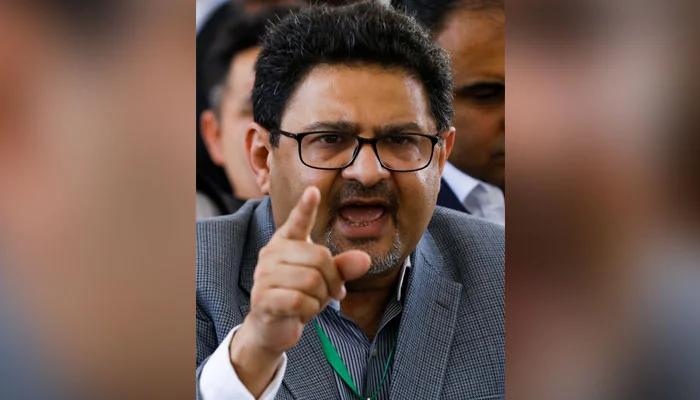ISLAMABAD, Aug 18 (ABC): Federal Minister for Finance and Revenue, Miftah Ismail here on Thursday announced lifting of ban on import of non-essential and luxury goods on the demand of International Monetary Fund (IMF), however said that the Regulatory Duties (RDs) would be enhanced manifold to discourage import of such products.
“It is requirement of international community that there should be no ban so we are lifting ban on all products. But simultaneously the duties I am going to impose would not let these commodities to enter into Pakistan as finished goods,” the minister said while addressing a press conference.
The minister said RDs would be enhanced three times or to the maximum possible level and could go even upto 400 to 600 percent or more.
He said the prime minister was not in favour of luxury products’ imports, knowing his responsibility to provide essential and basic commodities to the people of the country.
However, he said ban was lifted to comply with IMF, international agreements and World Trade Organizations (WTO).
However duties would be imposed on import of luxury food, shoes and all such things and even if anyone still wanted to import they were free, he added.
He said that Pakistan was not having many dollars to spend on import of luxury items adding that the existing resources would be utilized to provide people of the country with flour, wheat, cotton, edible oil instead of I-phones or luxury vehicle.
The minister said Pakistan had long negotiations with the fund and the IMF board was scheduled to meet on August 29 wherein programme with Pakistan would be approved as the country had already fulfilled all conditions and had taken all prior actions demanded by the fund.
He said, the $4 billion funding for improving the country’s exchange reserves had been arranged with the help of friendly countries including Saudi Arabia, Qatar and United Arab Emirates whereas China had also agreed to reroll $2 billion loans while Saudi Arabia also agreed to reroll its funds. So the funding requirement had been met, he added.
The minister said that electricity tariff condition had also been complied, hence there would be no non-funding subsidies.
Likewise, the minister said that government was expecting Rs 42 billion from retail tax, however after the reversal of the decision, the government revised the target to
Rs 27 billion and the gap of Rs.15 billion would be bridged by imposing more tax on tobacco and cigarettes.
He said Rs 36 billion would be collected from Tobacco and cigarettes by imposing taxes.
The tax on tier-2 cigarettes would be increased from Rs 1850 to Rs 2050 per 1000 cigarettes and tier-1 form Rs 5900 to Rs 6500 per 1000 cigarettes.
In addition to this the green leaf Cess has been increased from Rs.10 per kg to Rs.380.
The minister was of the view that the country’ economy improving as Bloomberg in its report had termed Pakistani Rupee as the best performing currency in the world during August whereas the Pakistan Stock Exchange also remained best performing stock market in the world.
The minister said that the government was adopting self-reliance policy to remain within its resources and curtail fiscal deficit and bring imports of the country to the level of exports plus remittance to check current account deficit.

